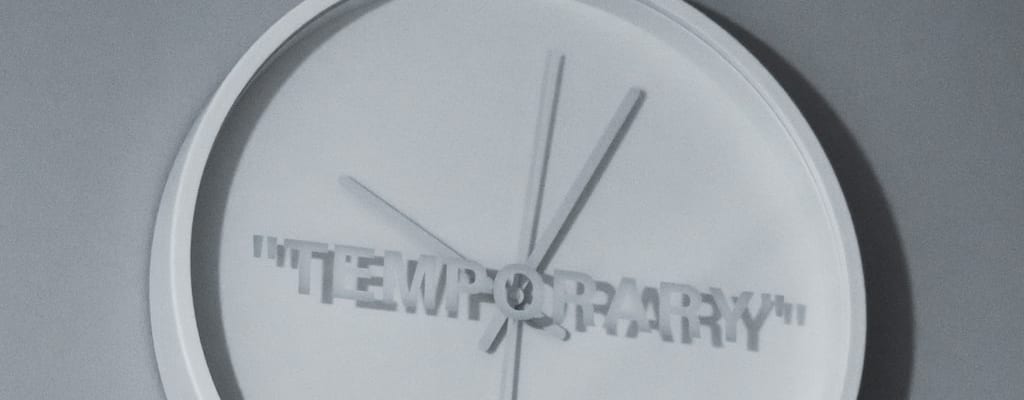our era: Idiom Meaning and Origin
What does ‘our era’ mean?
"Our era" is an idiom that refers to the specific period of time in which we currently live, often implying that it is unique or distinct from previous eras. It suggests a sense of belonging and ownership, emphasizing the significance of the present time.

Idiom Explorer
The idiom "seize the day" means to take advantage of the present moment and make the most of opportunities before they pass. It encourages living life to the fullest and not wasting time or delaying actions or decisions.
The idiom "prime of life" refers to the period of time when a person is in their most productive or successful stage of life, typically in their middle age. This is the time when individuals are at their peak in terms of physical, mental, and emotional abilities.
The idiom "party like it's 1999" means to celebrate or have a wild and energetic time, as if it were the end of the millennium, symbolizing carefree and uninhibited behavior.
An idiom used to refer to a particular person's character, occupation, or role, highlighting its uniqueness and individuality.
The idiom "outside world" refers to the world beyond a specific place or situation. It represents a realm that is different or separate from one's immediate surroundings. It is often used to emphasize the contrast between one's current situation and the larger world or society.
The idiom "out of date" means something or someone that is no longer current, modern, or in fashion.
The idiom "on the rise" refers to something or someone increasing in popularity, success, or influence. It suggests a positive upward trajectory or growth in a particular area or aspect.
The idiom "one's days are numbered" means that someone is likely to die soon or that their life will come to an end in the near future.
The idiom "one and only" means the unique or singular example of something or someone. It emphasizes that there is no other comparable or similar entity.
Decoding Modern Epoch
Our era is the time period in which we currently live. It describes the characteristics, trends, and events that define the present time. The term "era" comes from the Latin word "aera," meaning "counters" or "registers." The idiom "our era" emerged in the English language during the late 19th century.
The phrase emphasizes that each historical period has its own unique qualities. It recognizes the distinctiveness of our current time and highlights the cultural, social, political, and technological aspects that shape our lives. "Our era" suggests that the present moment is significant and worthy of reflection.
While the idiom is widely used, its meaning can vary depending on the context. In general, it conveys contemporary relevance and captures the spirit of the times. It implies that the present era has its defining characteristics and will be remembered in the future as a distinct period in history.
Our era encompasses various aspects of society, including technology, politics, art, culture, and popular trends. It reflects the rapid pace of change and innovation that characterizes modern times. The idiom also acknowledges the challenges and uncertainties of our era, such as global conflicts, climate change, and social inequality.
As an idiom, "our era" is often used to discuss current events, analyze cultural phenomena, and reflect on societal changes. It allows individuals to connect their experiences and observations to the larger context of the present time. The idiom invites contemplation of the impact and significance of our actions in shaping the trajectory of our era.
While the idiom primarily refers to the present time, it can also be used to compare and contrast different eras throughout history. By exploring the characteristics of past eras and comparing them to our own, individuals can gain a deeper understanding of the changes that have occurred over time.
in this day and age, the idiom "our era" encapsulates the concept of the present time and the distinctiveness of the period in which we live. It signifies the unique qualities and defining characteristics of our contemporary world. By embracing the idiom, we recognize the significance of our era and its potential for both progress and challenges.
The idiom "day and age" is synonymous with "our era." It conveys a similar sense of the present time and highlights the specific qualities that define the current period. at this point in time, both idioms capture the essence of the contemporary world and invite reflection on its significance.
in the here and now, the idiom "our era" encompasses the spirit of the times and the defining characteristics of the present moment. It directs attention to the unique qualities that shape our lives and invites contemplation of our actions in shaping the trajectory of our era.
When we speak of "our era," we acknowledge that we are living in a period of significance and change. It is a golden age that allows us to explore new frontiers, embrace innovation, and confront the opportunities and challenges of our time.
Example usage
Examples of how the idiom "our era" can be used in a sentence:
- In our era of advanced technology, communication has become much easier and faster.
- This book is a valuable insight into the political landscape of our era.
- The fashion trends of our era are heavily influenced by celebrity culture.
More "Time" idioms



